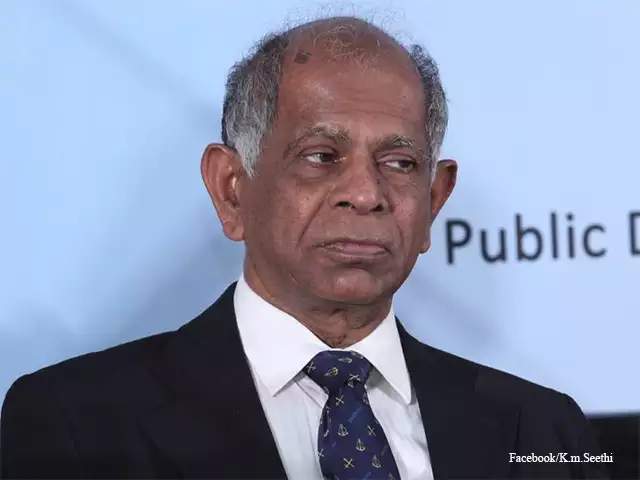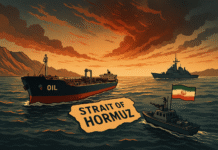In the Russia-Ukraine war, there are three belligerents: Russia, Ukraine, and the US-led NATO. There are two wars: One between Russia and Ukraine, and the other between NATO and Russia, or more accurately, between US and Russia. There are three men, responsible in varying measures, for starting the war and for preventing any agreement on a cease-fire.
The Preamble to the Constitution of UNESCO declares that “since wars begin in the minds of men, it is in the minds of men that the defences of peace must be constructed”.
This war, which completes its first inglorious year on February 24, 2023, is an egregious example of a war of choice that was avoidable by resorting to diplomacy to sort out the dispute before escalation unless all the belligerents, or one or two of them, wanted war at any cost.
There are three belligerents: Russia, Ukraine, and the US-led NATO. There are two wars: One between Russia and Ukraine, and the other between NATO and Russia, or more accurately, between US and Russia. There are three men, responsible in varying measures, for starting the war and for preventing any agreement on a cease-fire.
1962 and 2022
There is an uncanny parallel between this war that began in 2022 and the 1962 Cuban Missile Crisis. Kennedy demanded that Nikita Khrushchev should remove the missiles he deployed in Cuba. Kennedy insisted that the presence of missiles in Cuba threatened US national security. He did not say that Cuba had every right to pursue its defence policy.
In 1962, both Kennedy and Khrushchev demonstrated diplomatic maturity and resolved the crisis before it escalated into war, with the risk of a nuclear Armageddon. Sadly, the 2022 leaders lack diplomatic maturity and humanity is facing the risk of a nuclear war.
The Dooms Day Clock, maintained by the Bulletin of Atomic Scientists, founded by Albert Einstein and others in 1945, now reads 90 seconds to midnight.
Three men responsible for the war
They are, in alphabetical order, not necessarily in terms of responsibility, Presidents Biden, Putin, and Zelenskyy.
It is obvious that by sending his military into that part of Ukraine controlled by the government in Kiev, Putin violated international law including the UN Charter. To understand why Putin did it, it is not enough to say that he is aggressive. Why was he aggressive? We need to look at the big picture as every war has long-term and short-term causes including acts that trigger it.
The long-term cause is obviously the reckless eastward expansion of NATO starting in 1997. Historically, Gorbachev was assured that there would be no such expansion when he agreed to German unification in 1990-91 and withdrew Soviet forces from East Germany.
When the Soviet Union collapsed in December 1991, it was time to disband NATO as the purpose for which it was established, namely, to “keep the Soviet Union out, America in, and Germany down” as its first Secretary General Lord Ismay put it, had been realized. Incidentally, Ismay, born in Nainital, was a close aide to Mountbatten who presided over the partition of India.
The military-industrial complex, against which President Eisenhower had warned his compatriots in his farewell address in 1960, wanted NATO to expand as it wanted to sell more weapons. At the 2007 Munich Security Conference, President Putin gave a warning and Washington chose to ignore it.
President Biden is responsible because he deepened America’s military engagement with Ukraine and encouraged Zelenskyy to take a hard line with Moscow. When Putin asked for diplomatic talks to secure guarantees for Russia in mid-December 2021, Biden resorted to a toxic variety of public diplomacy and rebuffed him.
Zelenskyy, who came into office in 2019, claiming that he would do his utmost for a peaceful resolution of the crisis in relations with Russia did his utmost to aggravate the dispute with his big neighbour. Ukraine signed a Partnership Charter with the US in November 2021 that said in so many words that Washington ‘guaranteed Ukraine’s territorial integrity against Russian aggression’. This was the context against which Putin wanted talks as mentioned earlier.
Initially, Biden took the public stand that he would not give Zelenskyy all the weapons he was asking for or rather demanding, for fear of ‘provoking’ Russia. We do not know whether this is the correct account. It is possible that Biden wanted Russia to get deeper into Ukrainian territory, the war to be prolonged, and Russia to be destabilized by the disastrous impact of sanctions on its economy. He might have also calculated that if Putin, whom he publicly called a ‘killer’, could be brought down, his own re-election in 2024 might be a cakewalk. He might have also calculated that US companies would reap enormous profits by selling shale oil and LNG to Germany and others in Europe, not to speak of the soaring profits of the military-industrial complex that always welcomes a war.
Putin’s responsibility is self-evident. Even after starting the war, he had the option to declare a unilateral ceasefire after his forces captured a good part of Donbas.
Is there a ‘Ukraine fatigue’ creeping in?
Yes. Despite all the tedious repetition of support for Ukraine, we heard at the Munich Security Conference, some fatigue is creeping in.
Incidentally, how can you discuss security in Europe without Russia which was not invited to Munich? Attempts to isolate and humiliate Russia are not part of good diplomacy.
Biden has rejected the demand for fighter jets. Against the demand for over 300 tanks, Ukraine has been promised only 48 Leopard 2 tanks and that too after much pressure was exerted on Berlin by Washington. Even that delivery will take months.
Ukraine is firing about 10,000 artillery shells a day, much more than NATO’s production capacity.
As the 2024 presidential election gets closer, if there is no victory, Biden will be asked how long is the war going to last. Have you not failed as Commander-in-Chief? And so on. The Republicans with the majority in the House will rake up, sooner or later, sooner rather than later, the Hunter Biden involvement in Ukraine.
The level of solidarity with Ukraine in the EU has peaked. The refugees are no longer welcome. Hungary might oppose the renewal of sanctions.
Will there be a nuclear war?
Highly unlikely by a deliberate decision on the part of Putin. Accidental war cannot be completely ruled out.
The argument in the Western media that Putin would be constrained by the possible adverse response from India and China is rather self-serving and unconvincing. Putin has made rather ambivalent statements about the use of nuclear weapons. According to the Pentagon, there has been no follow-up action to raise the level of readiness.
However, the Western commentators have missed out, perhaps deliberately, a likely possibility of Putin’s issuing a concrete ultimatum if Ukrainian forces get too close to Russia. Russia might issue an ultimatum.
The Ukrainian forces advancing towards Russia currently at ab/cd coordinates are to stop advancing and to go back to coordinates pq/rs within 48 hours. Otherwise, consequences will follow.
Biden will have hardly any choice but to demand Zelenskyy withdraw his forces. In short, Putin need not press the button.
Has India followed the right policy?
Yes. India has correctly refused to join the West in condemning Russia and imposing sanctions on Russia.
India needs to maintain its relations with Russia for obvious reasons. India is right in buying oil from Russia. India has advocated an immediate cease-fire to be followed by serious and sincere negotiations, the only way to end this mad dance of death.
Washington and its European allies earlier tried to put pressure on India through public statements only to discover the futility thereof.
There are expectations in some quarters in Delhi that India might be asked by the belligerents to be a mediator. Nothing is impossible, but such a scenario is unlikely.
When will the war end?
The war will end if Biden and Putin agree to a cease-fire. Zelenskyy will have no choice but to fall in line.
Zelenskyy has reiterated that he does not want a cease-fire. He wants Russia to withdraw its forces from Ukraine including Crimea. He is being unrealistic, to put it mildly.
Washington and Moscow are in communication. There might not be any need for mediation, though a few are eager to mediate.
Biden’s statements made a dramatic visit to Kiev, after advising Moscow about it, and his meeting later with Russia’s neighbours do indicate that he wants the war to go on.
It is difficult not to quote the Roman poet Ovid, a contemporary of Christ:
“I see better things, and approve, but I follow the worse!”
Is that true of the political leaders in the third decade of the 21st century?
(Ambassador K P Fabian’s latest book The Arab Spring That Was And Wasn’t commissioned by the Indian Council of World Affairs is available only on Amazon)













